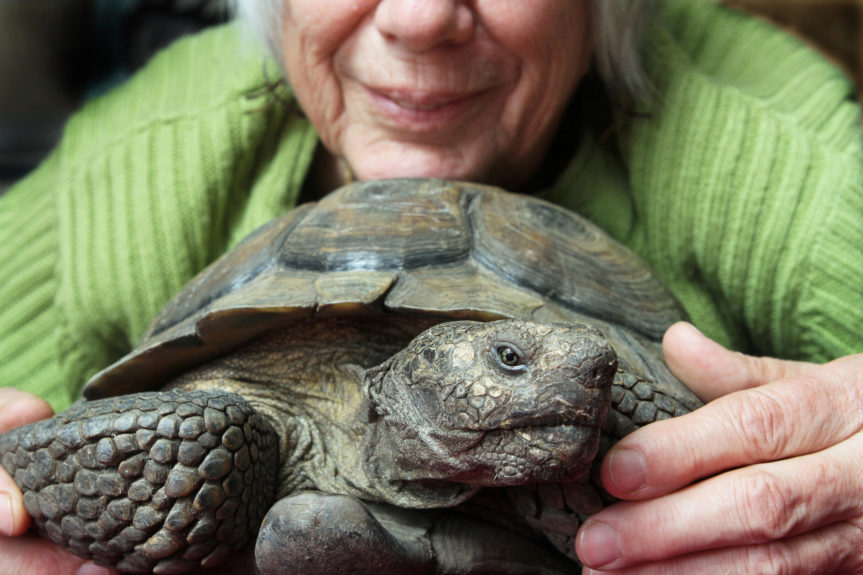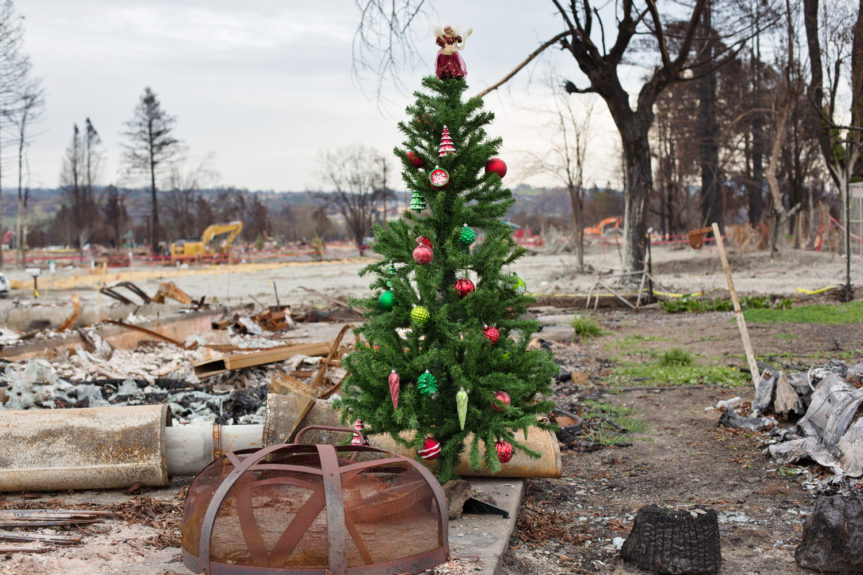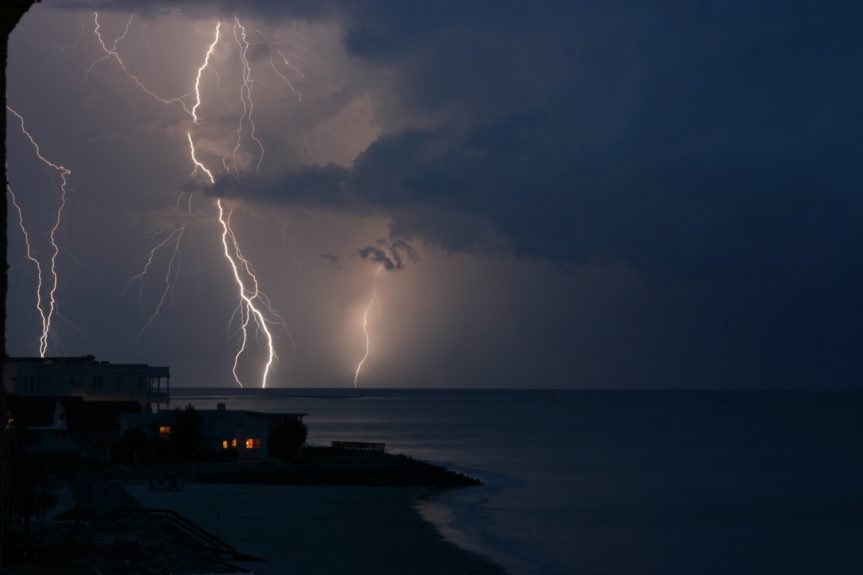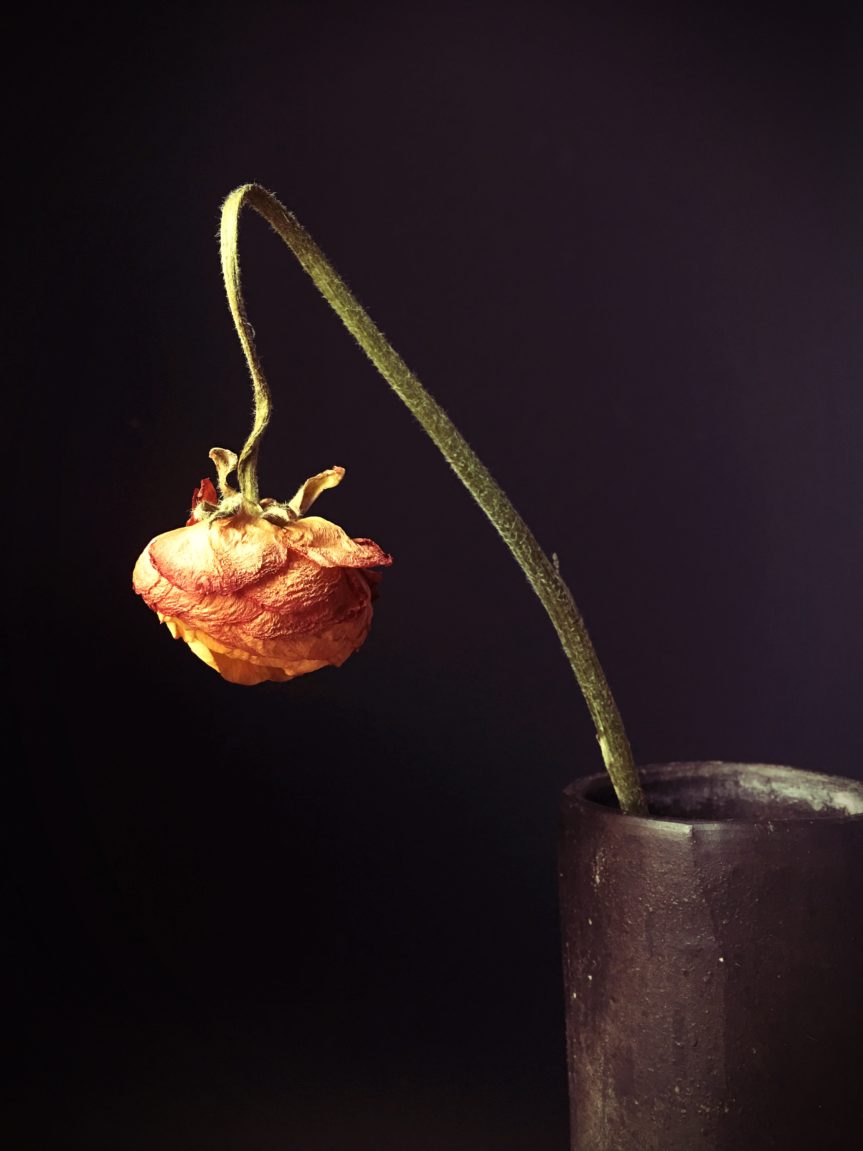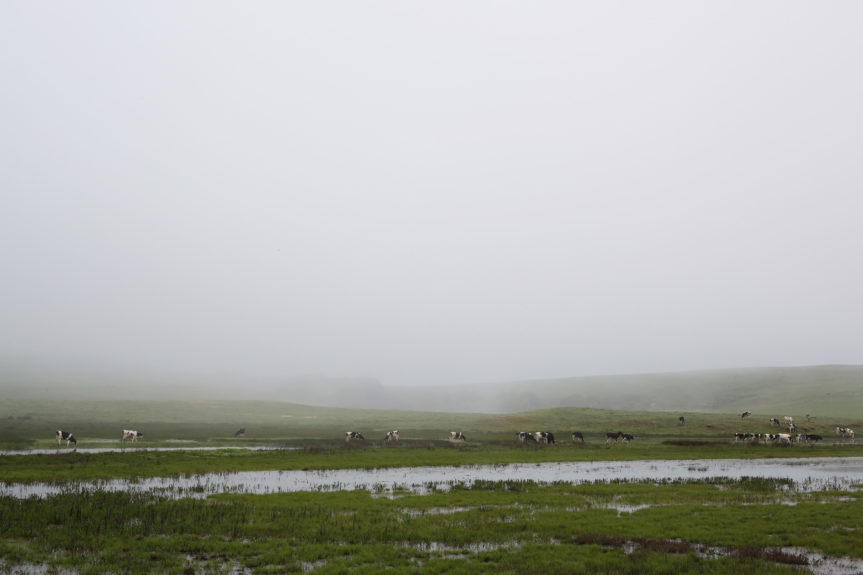Photo By _overanalyzer/Flickr
By Daisy Alpert Florin
The blanket, still in pieces, sits in a bag in my attic. I take it down sometimes, run my fingers over the soft white cotton, yellow now with age. If I let my eyes blur, I can almost see my mother crocheting in front of the T.V., a cigarette and glass of white wine on the nightstand beside her. Her needle moves in a jerky, seemingly haphazard way, but when it stops, a delicate white hexagon appears. Later, she will crochet these hexagons together to create the piece of blanket I am holding now.
My mother started making the blanket back in the 1980s to replace one her mother had made that was stolen from a weekend house we once owned. That house was constantly being broken into, so there wasn’t much to steal. This time, the thieves took whatever was left—a crappy television set, some dishes, a couple of beach towels. And the blanket. The police said they probably used it to carry out the rest of the stuff, then dumped it somewhere.
My mother cried when she heard that. Her mother—my grandmother, who still lived in Sweden where my mother was born—was blind by then and while she could still crochet, she’d never make anything as beautiful or intricate again. So my mother announced she would make a new one. She worked on it for years, was still working on it when my grandmother died in 1998, and when she died two years later, the blanket remained unfinished.
I have it now, zipped up in the navy blue Longchamp tote bag she kept it in. Inside are several dozen loose hexagons, a sewn-together piece not quite big enough to fit a twin-sized bed, a pattern book, crochet needles, several skeins of yarn. Everything I need to finish the blanket is there, but I can’t because I don’t know how to crochet. My mother never taught me.
It occurs to me now that perhaps the blanket is a metaphor of some kind.
•••
I don’t always think of my mother as an immigrant, but that is what she was. She left her home country, Sweden, in her early twenties, and never went back. She wasn’t an immigrant the way my father’s parents, Jews who’d fled Eastern Europe never to return, were. The forces that brought her here were neither political nor global.
But like all immigrants, my mother was escaping something, a poverty of some kind or another that propelled her to reinvent herself on foreign shores. As her daughter, the child she rooted here to stake her claim, there would always be a part of her I wouldn’t know. Something lost in translation.
•••
“Maybe you could find someone to finish it,” my father says when I ask him what I should do with the blanket.
“Oh, yeah?” I say. “And who might that be? A crochet fairy?” I picture an older Nordic woman with braids and a mustache who would charge me a fortune to finish something no one actually wants. My father, who, I am certain, believes such a person exists, sighs and changes the subject. He’s never been one to pick a fight.
My parents met on a blind date in New York in 1967. Legend has it my mother was wearing a pink rabbit fur coat. My father visited Sweden for the first time the following year, for Christmas.
I can still hear the wonder in his voice as he describes it: Christmas—in Sweden no less— through the eyes of a Jewish boy from Brooklyn. “My family never celebrated Christmas,” he tells me. “We never celebrated Hanukkah. We never celebrated anything.” No wonder he married her.
I can understand what attracted him to her. I’m not immune to the desire to be with someone who offers a pathway into a different life, one you couldn’t possibly be expected to create on your own. This is why my father loves the blanket, thinks it worthy of repair: because it reminds him of that Christmas and all the ways he was seduced, not just by my mother but by Sweden itself. If my mother was fleeing something when she left Sweden, my father was fleeing something, too.
My parents’ marriage ended not long after the blanket was stolen, but that doesn’t stop my father from telling people who he hears speaking Swedish on the street, in restaurants, or in elevators, “My wife was Swedish.” Your ex-wife, I want to say but don’t. I know this is a point of pride for him, proof he took a chance once, for love. Maybe difference isn’t enough to build a life on, I want to tell him. Maybe the fault line at the center was too much to overcome. But because I love my father, I let it go.
•••
To me, making a blanket by hand would be an impossible labor of love. But that was what Swedes did: they made things. Blankets, scarves, mittens, sweaters, dresses—everything by hand, knitting and sewing and crocheting late into winter nights that began at three o’clock. “We had nothing else to do, Daisy!” my mother would say, laughing, and her older sister, my aunt Marianne, who used to hook her own rugs, would nod in agreement.
When my mother came to New York, Marianne was already here, and the two Swedish sisters—a phrase that always sounds like the set-up to a raunchy joke—lived together in a fourth floor walkup apartment on East 54th Street. After my mother married my father and I was born, we moved to a larger apartment on the Upper East Side.
There were a lot of women like my mother on the Upper East Side, Swedes married to Americans—Jews, specifically—but my mother was different. For one thing, as she liked to point out, those women were married to men a lot richer than my father. But there were other differences, too. Their children spoke Swedish and had Swedish names and spent summers in family homes on Sweden’s cold and rocky shores. We did none of these things. Whenever I asked my mother why she never taught my brother and me to speak Swedish, she would say, incredulously, “Why would you ever need to speak Swedish?”
I sometimes thought the other Swedish women judged her for not passing on her Swedish traditions. Perhaps I judged her for that, too. But my mother seemed all too happy to cast off her history. Her children would grow up knowing little about the country of her birth, and she was okay with that. “Your mother was an American from the day she arrived” is how my father puts it. And he’s right: there was something about her Swedish-ness she wanted to leave behind.
•••
A blanket is a shopworn metaphor, one that conveys warmth and home and all the things that are lost when a mother dies. But that is not what I want to say about my mother, or about the blanket.
The blanket is made up of hundreds of small white hexagons. Each hexagon is divided into three triangles; on each triangle are six raised bumps arranged in a pyramid design. The bumps are, I suppose, what give the pattern its name: Swedish Popcorn. When crocheted together, the hexagons transform into an undulating pattern of six-pointed stars. Looking at it almost makes me dizzy: I can’t tell where one star ends and another begins.
My mother was not a blanket. She could be critical and reserved. She wasn’t exactly the kind of woman who wrapped you up in a blanket of her love. As for the blanket, well, it’s really more of a bedspread. Decorative rather than functional. Also, it’s cotton and, because it’s crocheted, full of holes. It’s pretty, if you go for that sort of thing, but not exactly warm or cozy or any of the things you might think of when you think about a blanket.
I resist the urge to have it stand in for my mother in part because it feels too maudlin—a concrete symbol of her unfinished life and everything she didn’t have time to teach me—but also because that wasn’t her. When she died, my mother’s closets were full of blazers and skirts and pants with factory-sewn tags—J.Crew, Saks, Banana Republic. She could still sew and knit and crochet. She could even reupholster furniture. But over the years, she did all of this less and less as Sweden moved further into her past. Besides, this was New York and she wanted things she could buy.
•••
Before my mother moved to New York, her father made sure she could type. Quick and clever and affable, she was in high demand as a secretary, and it wasn’t long before she rose in her chosen field, fashion. My mother was always a working mother, and she didn’t feel conflicted about it. She didn’t come on class trips or help me with my homework or pick me up early for mother-daughter shopping trips. I used to chalk this up to her foreignness, that these were things she didn’t know she was supposed to do because she wasn’t born here. But eventually I came to understand that she didn’t do these things because she didn’t want to.
My mother’s parents divorced in 1948 when my mother, the youngest of their four children, was five, and my grandmother remained financially dependent on my grandfather for the rest of her life. Back in the early 1990s, when she first discovered Suze Orman, my mother realized how watching the financial dynamics play out between her parents had had an impact on her.
“Every Sunday night, my father would come over for dinner,” she told me once. “Before he left, he would leave an envelope with cash on top of the wardrobe in the front hall. There was no discussion of how much he would give her. He decided how much she would get and that was that.”
It was important to my mother to be financially independent, but she didn’t know how. Whatever money she made, she quickly spent. My parents fought often and bitterly about money. I remember my father telling me once, in anger, that my mother had spent $30,000 that year on clothes. When my mother left my father, she bought a $4,000 rug for her new apartment that the cat threw up on.
In 1998, when my grandmother died, my mother and I went to Sweden for her funeral, and I asked her to show me some of the places she’d lived as a child. We pulled up in front of a neat, two-story attached house.
“My brothers had the front bedroom,” my mother said, pointing at the windows, “and Marianne and I shared the one in back.”
“Where did your mother sleep?” I asked.
“In the dining room.” My mother was quiet for a while. Then she started the car back up and said, “What a life.”
There was something in her voice that day that made me think this—the mother in the dining room, the envelope of cash in the front hall, a life circumscribed by children and circumstance—was what she was running from, the hole she was always trying to fill. My mother wasn’t forced to leave Sweden. She could have stayed. The life she left wasn’t terrible or unbearable. It just wasn’t enough. There are times I wonder if that’s why she decided to remake the blanket, to atone for a wrong that had been done. The burglary, yes, but also the leaving.
In the short window of time when my mother was motherless, I saw her cry about it only once, on the day we got the news that my grandmother had died. “I just don’t like the idea of not having a mother anymore” is what she told me. As if that’s what a mother becomes after so many years away: an idea.
•••
My mother never became an American citizen. It wasn’t possible to do so at the time without losing her Swedish citizenship. “And I might want to go back someday, when I’m old and sick,” she always said with a laugh, “so Sweden can take care of me.” I used to believe her, imagined her packing her bags and heading back across the ocean. But as the years went on, she must have known she was never going to go back, that the life she’d built here mattered more than the one she’d left behind.
There is something else inside the Longchamp tote: a Ziploc bag with one hexagon inside it, a golden needle shoved through its center. I remember she used to carry pieces of it like this when she traveled for business so she could crochet during layovers or on overnight flights to Hong Kong. I hold it now, the oils from my fingers mixing with the shadow memory of hers, move my thumb across its bumpy Braille-like texture. I wonder when she realized she would never finish it, not because she was dying but because she simply lost the will.
In the end, she managed to make and sew together more than a hundred hexagons. But the blanket will never be finished because I will never finish it. Maybe my mother never taught me because she thought we’d have more time. Or maybe—and this seems more likely—she didn’t teach me because she thought it was something I’d never need to know. Maybe that’s what immigrants do—what mothers do—imagine worlds for their children that are bigger, vaster, and more electric than their own.
And maybe that was part of why she came here, to raise an American daughter far from Sweden’s dark winters and limited possibilities. A daughter who knew this much at least: that we aren’t always meant to finish what our mothers leave behind.
•••
DAISY ALPERT FLORIN’s essays have appeared in Full Grown People, Ms. Magazine and Under the Gum Tree, among other publications. Her essay “Crash” was listed as a notable essay in The Best American Essays 2016. She is currently at work on a novel. Read more at www.daisyflorin.com.

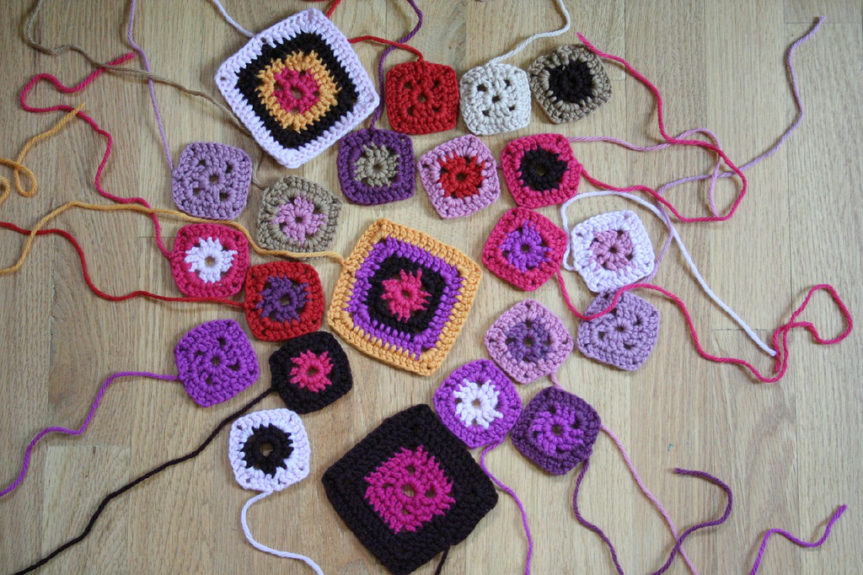
 Follow
Follow
